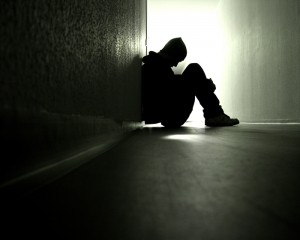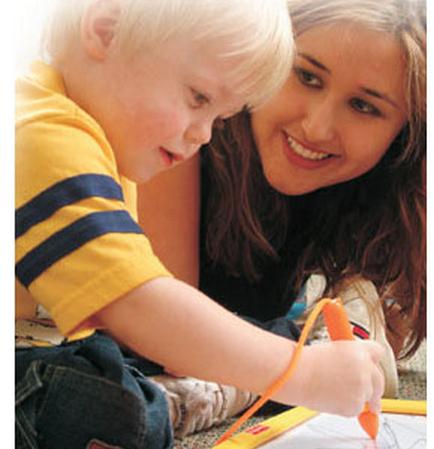It’s not something I talk about very much. It’s really quite boring. But even more than that, it’s really quite depressing. It’s negative. It’s not the me that most of you have come to know now, that is if you have been reading the things I write before this one. If this is the first of mine that you read, I am sorry. But please do stick it out because there is a point to my telling you this.
 10 years ago
10 years ago
When I was 26, I lived in one of, if not the, most beautiful city on Earth, Vancouver BC. I really loved it there. I had an apartment on Beach Ave, over looking the ocean. My living room wall was glass from top to ceiling. Just me, my computer and the most beautiful sight you’ve ever seen.
And I was miserable.
I didn’t know it back then but I have Asperger’s. Back then, I was just… me. Miserable, depressed and lonely. Which is funny to think about because I did have friends and family that lived close by. But I was so very lonely. I would work at my computer, making websites for people. I made my own hours, I made my own money. I had no boss. I had no place to be.
My schedule would shift because every single day I’d go to bed one or two hours later than I had the day before. I say day, not night, because when you continue this process for several years, you go from staying up all day to staying up all night and back again.
I had accomplished my goals. I worked for myself. I could afford a great apartment. I did as I pleased.
I wanted to kill myself.
My darkest day
It never really occurred to me just what it was I was telling her or how much it must have been hurting her or just how stupid it was of me to be saying it but, without a doubt, the worst it had ever gotten was when I told my mother, while bawling my eyes out, that I was so very sorry because she would never get to be a grandmother.
Me, being her only child, feeling completely defeated and worthless in life, had fully accepted that no one would ever love me and that I most certainly would never get to a point in life where I would ever have a family.
I couldn’t be the person that people wanted me to be. I felt a total fraud every time I walked out the door. I told witty stories, quick one liners and would often be the “life of the party” with those that knew me but it was never right. It was never me.
I loved who I was and what I had accomplished but hated myself all the same.
I even sought out help in the form of a psychiatrist but it proved to be pointless. I don’t know if it’s because of my Asperger’s or just watching far too many drama movies and television shows but it was as if I could see each line he said before he said it. I knew the points he would be trying to make, I knew the directions he would try to take. And each and every time I would dismiss and ignore. It never pertained to me. It never pertained to my problem. It was always stuff that made sense for other people but not for me.
And so I resigned myself to a life of solitude. I told my mother that our family line would end with me. Her disappointment.
What a thing to tell a mother.
10 years later
So here I am now, 36 years old and feeling like my past was only a moment ago and a whole other life time ago at the same time.
Today I have a wife, two little boys, a dog and a cat. I have no money, no free time and a very strict schedule. I live in a crappy apartment with no view to anything in a town that I don’t want to be in.
I’m the happiest I’ve ever been.
So what happened? Well, to be honest, it’s not really the details that matter. What matters is that I was there for them to happen.
My wife, as it turned out, was one of my oldest friends. I had known her for a very long time. One day, at the right moment, in the right place, something happened. And here we are.
Thing is, if I had had my way, at that time, I’d have still been at my computer, in my Beach Ave apartment, being miserable. That moment would have never happened.
A moment in time was all it took. I didn’t know when or where, I was most certainly convinced it would never exist, but it did. And now my life is not just different from what it was, it’s nearly the opposite.
I have no friends now and my family is hundreds of miles away but I never feel lonely. My wife and kids, they were what I was missing. They have filled that hole in my heart.
I have no money or time anymore but at the same time, my kids always have food, the latest games and toys, clothing on their backs. You can have all the time and money in the world but they have no value at all unless you have a purpose for them.
Your future you is waiting for you
It sounds corny and I’m not making you a guarantee but if you believe it and if you work for it and you make the effort to simply be there, that moment can happen to anyone.
Many autistics fear their own future. Will it be more of the same? Bullying in school? Bouncing around jobs if there are any jobs? Feelings of anxiety and loneliness?
Parents also have these fears for their children. Especially if their children are non-verbal or particularly challenged, such as having other associated conditions like blindness or epilepsy.
I am not trying to throw positivity down your throat. I’m not Anthony Robbins. But I can tell you how I see things based on my own experiences.
If I had stayed at home, if I had moped for one more minute, if I had simply believed myself worthless at that one key moment instead of… what ever it is that I felt… I would probably still be on my own. If was I still alive at all by now.
I didn’t know it then but autism was confining me to that computer chair. It was making each outing a torturous affair. It made me disregard or even dislike the friendships I had even though I loved my friends. It made me hate myself.
At the time, I thought I was just a loser. Just the oddball out that was meant to be alone. A person that was meant to be miserable.
But I did go out. I did keep that friendship going after so many years, even though that was largely due to her, insisting on keeping in contact even when I would “forget” to reach out.
I look back now wishing I could travel in time so that I could tell myself just one thing; “Endure this. It’s going to really suck and you’re going to really hate it but endure it. Because no matter how impossible it seems, like it could never happen to you… it can. I am your future and your future is waiting for you.”
To be honest, I probably wouldn’t have listened, not even to myself. That’s how miserable I was. But that kind of hope can make all the difference.
That kind of hope is what is missing for a lot of young people today. Especially those with autism who feel like there is just no place for them in this world.
To those waiting for their moment
My son has two advantages, the way I see it. One is that he knows he has autism so he’ll know the reason for feeling how he feels. Perhaps he’ll even know the coping mechanisms to not let it get in his way. It won’t just be a random feeling of despair and loneliness. Second, he has me. And I’ll always be there to tell him that his future self is waiting for him. That he can and will be happy if he endures long enough.
But I’m not a time traveler nor am I a fortune teller. So I can’t make any promises on what the future will hold. I can only tell you what I have experienced and what I believe.
What I believe is that there is nothing that can ruin your life unless you let it. Not autism nor anything else. Granted, it can make it one hell of a whopping huge challenge but nothing can stop you from loving life and being happy.
You could argue that I was lucky, to have had that one moment that turned things around for me but that’s kind of the point I’m trying to make.
I told you that I felt lonely even amongst my friends. I told you that each outing was torturous. But I still went out. I still had friends. I still left my little ocean side apartment because if I didn’t… there never would have been a moment. I would not be here, right now, believing what I believe and sharing it with you.
Even though it was that one moment that I can pin point, looking back, that changed everything… it wasn’t in that instant that I suddenly switched from miserable to happy.
It was that moment that things turned around but it took time. A lot of time.
My point is, it wasn’t just luck. I wasn’t lucky. I was anything but lucky at that point in my life. But I was there.
You need to be there too. When every part of you tells you not to be, when every part of you tells you it won’t happen… be there anyway.
If you feel like an outsider, if you feel completely alone, if you have autism too… you know just how hard that really is.
But your future self is counting on you. Your future self is waiting for you.
Be there.












